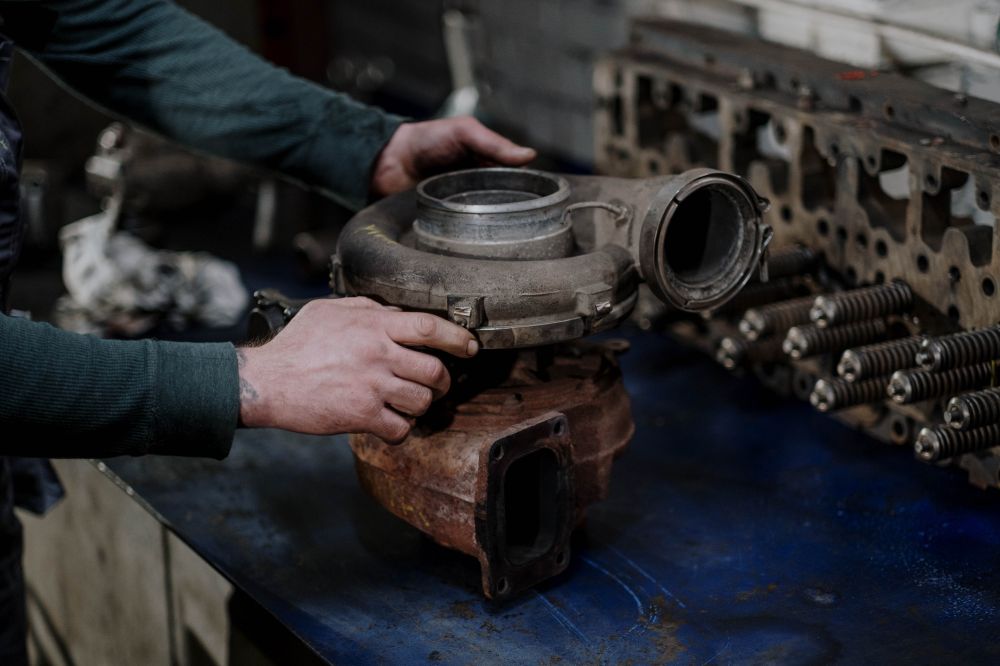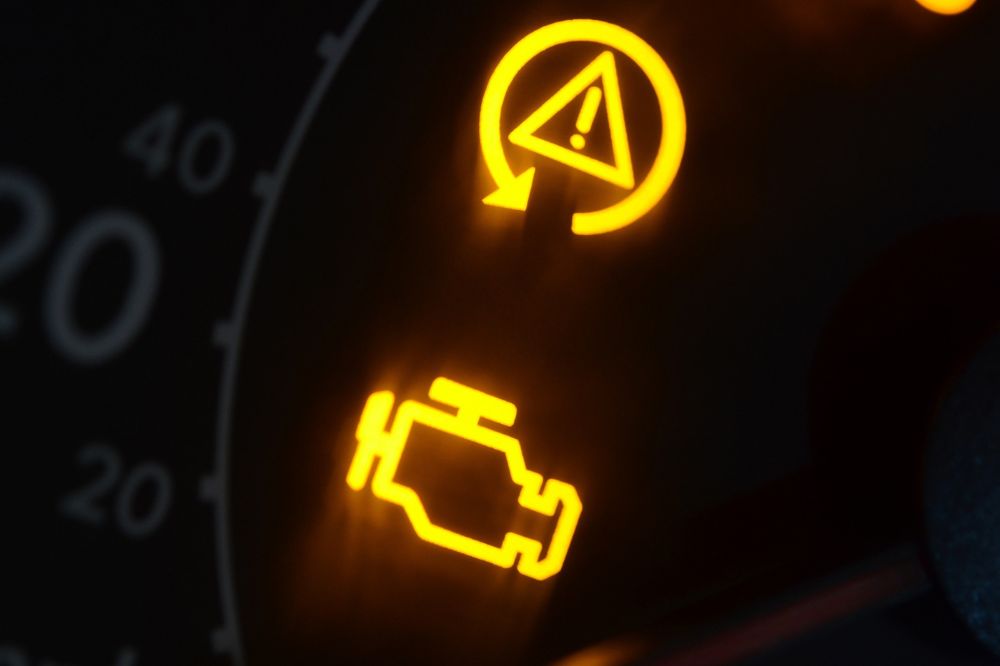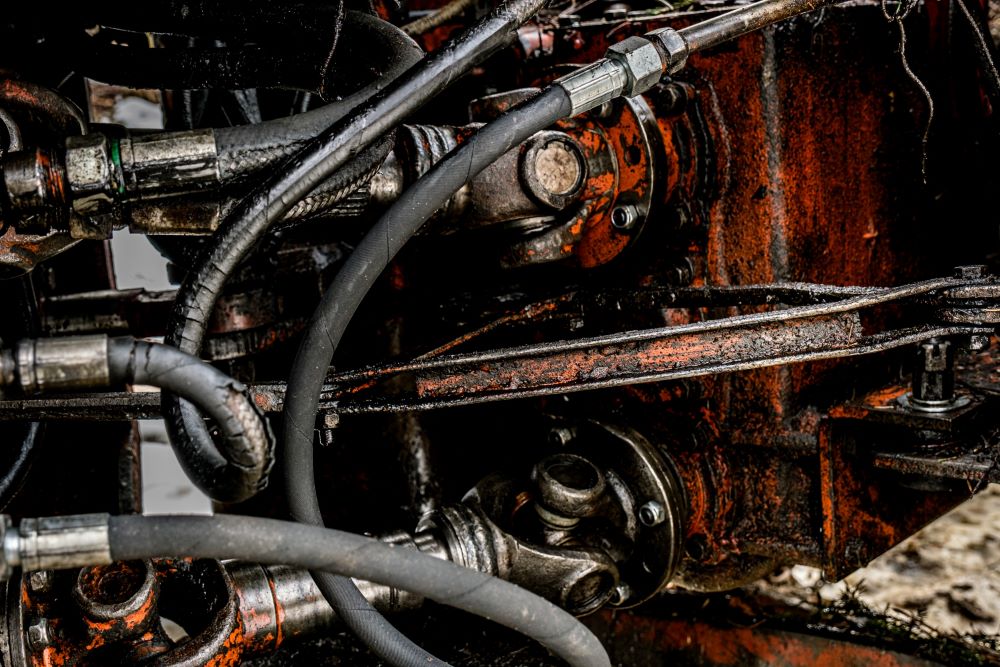
An important part of being a semi-truck driver is understanding how the different parts of your vehicle work. Just like you need to know when to identify bad shocks or problems with your fuel filters, how to spot a failing turbocharger in your semi truck is equally important.
Here’s everything you need to know about identifying a failing turbocharger in your semi-truck.
What is a Turbocharger and How Does it Work?
A turbocharger is a device that helps increase the power of a truck or car engine by forcing more air into it.
Here’s how it works:
- Air sucks in: When the engine runs, it sucks in air for combustion.
- Turbo spins: The turbocharger has a turbine inside that spins really fast.
- Exhaust powers turbo: As the engine burns fuel, it produces exhaust gasses. These gasses spin the turbine.
- Compresses air: The spinning turbine is connected to a compressor on the other side. This sucks in fresh air and compresses it.
- More air, more power: Compressed air is forced into the engine. With more air intake, the engine can burn more fuel, creating more power.
- Boosts performance: This extra air pressure power boosts the engine’s performance, making the car faster and more efficient.
Common Signs and Symptoms of a Bad Turbo
Turbo failure can be a pretty common issue. To help you identify it, here are some of the main signs of bad turbo on semi-truck engines.
Power Loss
One of the most noticeable signs of a faulty turbo is a significant loss of engine power. When the turbo isn’t working properly, it can’t deliver the necessary boost to the engine, resulting in reduced performance.
Losing this boost gauge can make your vehicle feel sluggish and struggle to accelerate. This is especially noticeable when you need it to respond quickly, like when merging onto the highway or overtaking other vehicles.

Engine Warning Light
Another clear sign of turbo trouble is the illumination of the check engine light on your dashboard.
The check engine light can come on for various reasons, but when it’s related to the turbocharger, it often signifies issues like overboost or underboost conditions.
Whining Engine
If you start hearing strange noises coming from the engine or the area around the turbocharger, it could be a sign of turbo faults.
A whining or whistling sound, especially during acceleration, could indicate issues with the turbocharger. Damaged bearings, a leaking seal, or other internal problems might cause these noises within the turbo.
Oil Consumption and Exhaust Smoke
A bad turbocharger can lead to increased oil consumption by the engine. You might notice that your vehicle is burning through engine oil more quickly than usual, which could be a result of oil leaking into the exhaust system because of a failing turbo.
You might also see excessive exhaust smoke, which can appear blue or white. This indicates the presence of engine oil in the exhaust gasses.
Excessive Fuel Use
When a turbocharger isn’t functioning properly, the engine may compensate by burning more fuel to maintain performance levels. This can result in decreased fuel efficiency and increased fuel consumption – costing you more money at the pump.
If you notice that you’re filling up more frequently than usual, it could be a sign that your turbocharger needs attention.

Oil Leaks
Inspect your turbocharger and the turbo housing for any signs of oil leaks. Oil leaks can mean problems with the internal seals or bearings inside the turbo, which need to be addressed to prevent further damage.
Look for oil puddles or stains under the vehicle, as well as any oil buildup or residue on the turbo itself.
What Causes a Turbo to Break Down or Go Bad?
Now that you know how to identify turbocharger failure, let’s explore some of the main reasons you might experience blown turbos.
Wear and Tear
Like any mechanical component, turbochargers can wear out over time because of normal usage.
Continuous high-speed driving, frequent acceleration, and harsh driving conditions can add to the wear and tear of turbocharger components, leading to eventual breakdown or failure.
Oil/Lubrication Issues
Proper lubrication is crucial for the smooth operation of a turbocharger. Insufficient oil levels or dirty oil can lead to bad lubrication of the turbocharger’s moving parts, causing increased friction, overheating, and eventual failure.
Oil contamination from coolant or fuel leaks can also degrade the turbocharger’s components and reduce its lifespan.
Foreign Objects
Foreign objects entering the turbocharger, like dust particles, dirt, debris, or even small particles from a damaged air filter, can cause damage.
These foreign objects can get stuck in the turbocharger’s intake or exhaust side, leading to compressor or turbine wheel damage, bearing wear, or seal leaks.
Damaged Seals
Seals play a critical role in maintaining proper airflow and preventing oil leaks within the turbocharger. Over time, seals can degrade because of heat, pressure, or exposure to contaminants, leading to leaks and loss of performance.
Damaged seals can allow oil to enter the intake or exhaust system. This causes excessive exhaust smoke, oil consumption, and potential damage to other engine components.

Should You Be Driving With a Blown Turbo?
It’s definitely not recommended to drive with a blown turbocharger. A blown turbo can lead to severe engine damage, reduced performance, and potential safety hazards.
Continuing to drive with a blown turbo can also cause further deterioration of engine components, including increased oil consumption, excessive exhaust smoke, and potential engine failure.
It’s best to have the turbocharger inspected and repaired by a professional mechanic as soon as possible to prevent any further damage to your vehicle.
Final Thoughts
If you notice any of these turbocharger issues, make sure you address them as soon as possible. Fixing a turbocharger quickly will help you avoid further damage and issues with your vehicle.
Looking to purchase a new semi-truck? Then get in touch with us at Mission Financial, where we make the financing process easy for all truck drivers or trucking business owners.


